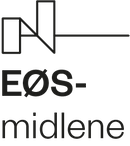New research cooperation with Chopin Institute
The Center for Grieg Research has entered into a collaboration with The Fryderyk Chopin Institute in Warsaw. The project is funded through The Norwegian Research Council - EEA and Norway Grants from 2020–2022, in cooperation with The Arts Council Norway.

Main content
The Center for Grieg Research participates as a partner institution in a new Polish-Norwegian project, led by the Chopin Institute in Warsaw.
The allocation is EUR 196,000 (EUR 289,000 for the entire project). The project is funded through EEA and Norway Grants. Project leader in Bergen is Arnulf Christian Mattes, leader, Grieg Research Centre.
Project start is November 2020. The results will be presented at an international conference in Warsaw in October 2022 and through a dedicated website including freely available publications. The project's goal is to contribute to a greater understanding of European music theory as a common historical basis for national music traditions. The purpose is (from the project description):
The project aims to identify cultural, social and historical processes that conditioned the emergence and strengthening of distinct national identities stemming out from a shared foundation of European treatises on music theory. A better understanding of European music theory offers new insights into the output of European composers and intellectual currents in music. This leads to a better understanding of creative choices in composition and helps distinguish between continuations of general European trends and distinctive qualities typical of individual countries, regions or composers.
The project responds to vital needs of modern academic scholarship in European music culture. The aims of the project include: [1] coming up with a picture of the original state of European music theory in periods past; [2] developing a deeper understanding of the main theoretical currents, based on texts by leading European music theorists (e.g. Johann Nikolaus Forkel, Heinrich Christoph Koch, FriedrichWilhelm Marpurg, Anton Reicha, Luigi Cherubini); [3] identifying the different paths followed by evolving identities in different countries (notably by the project's leading figures, Fryderyk Chopin and Thomas Tellefsen); [4] creating free and public online resources on German and French theory, including translations into Polish and English.
